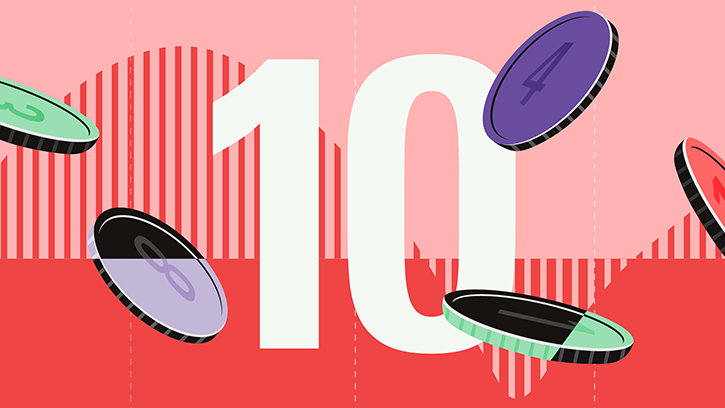
US equities shrugged off geo-political fears in the first half of 2018 to storm to the top of the best-performing top-rated funds list. But trade war talk meant emerging market offerings were relegated to the bottom of the charts, data from Morningstar Direct show.
The last time we checked year-to-date performance, at the end of the first quarter, we’d seen sell offs in both equity and bond markets, meaning it was difficult to find many funds that had delivered positive returns.
This time, however, the majority of Investment Association sector averages were in positive territory. The Technology & Telecommunications, North American Smaller Companies and North America sectors led the way at 10.14%, 9.41% and 5.45% respectively.
UK funds performed well, with the UK Smaller Companies and UK All Companies sectors defying Brexit worries, up 5% and 3% respectively. Sandwiched in between those was the Japanese Smaller Companies sector at 4.3%.
Best-Performing Funds
Despite the dominance of North America funds, the Silver rated Lindsell Train Japanese Equity offering, managed by Michael Lindsell, kept its spot as the best performer, returning 15.16% in H1.
In May, the fund added its first new holding in six months when it bought shares in video game publisher Square Enix Holdings (9684) after the stock price had fallen 16% since the start of the year. Even two months into the holding period, it’s been a successful investment having climbed around 20% since purchase.
Following closely behind Lindsell’s fund are two offerings from T. Rowe Price. Its Bronze rated US Large Cap Growth Equity and Gold rated US Blue Chip Equity funds returned 15.1% and 15% respectively. Both lean heavily on tech stocks, with Amazon, Facebook and Microsoft the top three holdings in each.
Alan Rowsell’s Bronze rated SLI Global Smaller Companies fund stays as the fourth best-performing fund this year thus far, netting investors a 14.52% gain.
In fifth place, comes the Bronze rated Franklin US Opportunities fund, run by Grant Bowers and Sara Araghi. The £147 million offering can invest anywhere in the US market and is run with a growth tilt. The managers look for firms that will generate sustainable long-term earnings growth.
The fund currently has more than a third of its portfolio exposed to tech names, with Amazon (AMZN), Apple (AAPL), Microsoft (MSFT), Facebook (FB) and Alphabet (GOOGL) all top 10 holdings.
Worst-Performing Funds
As the best performer from three months ago remains the best performer today, so too the worst performer stays the same. The Bronze rated Jupiter India stretches losses this year to 16.4% as at 30 June. Indian equities in general have struggled this year, with the India Equity category down almost 10%.
Despite this underperformance, Jupiter India still has a strong long-term record, with both Barclays Smart Investor and AJ Bell Youinvest listing it as one of their clients’ favoured investments.
Fellow Bronze rated fund Aberdeen Latin American Equity also saw double-digit losses in the first half, losing 14.7%. Despite political fears in Brazil and Mexico – the two markets where all top 10 holdings in the fund are listed – both the countries’ Morningstar indices are up on the year to 18 July.
Of course, emerging markets have been hit by both trade war talk and the strength of the US dollar. The next three worst performers, all Silver rated, are more general emerging market offerings.
It’s unsurprising emerging market offerings heavily feature at the bottom of the list. The Global Emerging Market, Global Emerging Market Bond and Asia Pacific ex Japan are the three worst-performing IA sectors.
JOHCM Asia ex-Japan was down 11.33%, while Robeco Emerging Stars Equities and Lazard Emerging Markets lost 9.7% and 9.59% respectively.
While the outcome of trade tensions will be a binary outcome – there will either be a trade war or there won’t – and tensions between the US and China will rumble on regardless, Fabiana Fedeli, global head of fundamental equities at Robeco, says fundamentals are still looking positive.
“Our emerging markets portfolio managers see macro and earnings unchanged with earnings still likely to grow at 15% for the year,” he says. That said, he adds, “they believe that most global investors will now take a wait-and-see approach to see what happens on the trade side and on emerging currency volatility”.

































